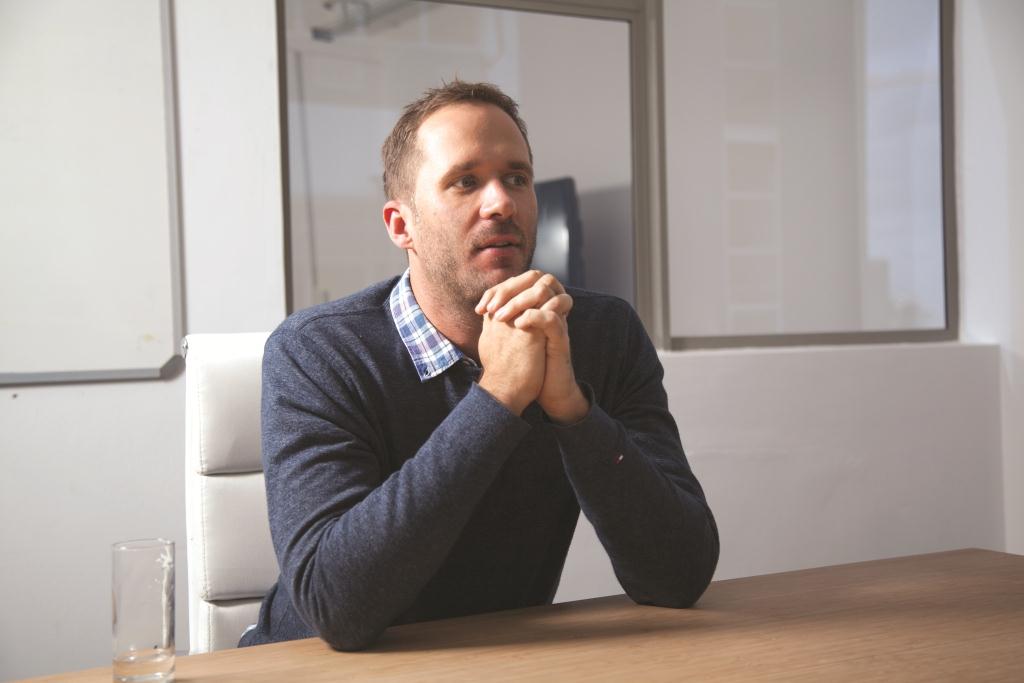It’s a gloomy summer’s day in Cape Town. A blanket of never-ending dreariness fills the skies. Bleakness has played a big part in Peter Allerstorfer’s journey to entrepreneurship. On this day, he is dressed in blue much like how he felt three years ago when he – and his partners – went into business.
This is a long way from Austria. He is overseeing the remodeling of their offices in the heart of the mother city, just as he remodeled his life when he travelled 13,500 kilometers to Africa. He swapped his well-paid job at McKinsey & Company for building companies around the continent.
“I was missing something. I felt like doing something hands-on and creating something and seeing the results. I got an opportunity from Rocket Internet to build African operations and I took it,” says Allerstorfer.
He moved to Cape Town to start Zando, one of South Africa’s largest e-commerce fashion stores, and later Jumia, Nigeria’s largest e-commerce shop. He did the jobs well.
“It was a difficult thing to do because I had a promising career ahead of me. I wanted to start something entrepreneurial. We got funding and we just had to deliver the work and run the company. The company was running and we were a fully-fledged retailer.”
Loading...
It was far from enough.
“I stood there and saw all these things and realized I have put so much work on something that isn’t really mine. That’s when I realized it was time to build something on my own,” says Allerstorfer.
He co-founded Silvertree Capital, an investment company that builds businesses in Africa by bringing together new and old economy business models, with Paul Cook and Manuel Koser.
Starting his own business was hard. It also ushered in his worst day.
“We just left Zando and we didn’t know exactly what we were doing. We knew we are good in tech and e-commerce so we stuck to that… By the end of 2013, things were looking good. We launched our businesses, found an investor we were making progress,” says Allerstorfer.
They launched HealthCart, an online pharmacy, in 2013, launched an online marketing agency to service it and also launched a price comparison site.
Then trouble started.
“The investor in our e-commerce online pharmacy service business wasn’t delivering what they said they would. Also they had more control in the business and we didn’t, even though they knew less about the ecommerce industry and didn’t understand technology,” says Allerstorfer.
Over time, friction developed. To make matters worse, the investor in the price comparison company disappeared.
“He said he would put more money over time but we couldn’t get hold of him anymore. He just disappeared and didn’t fulfil his promise.”
In about six months, they reached a breaking point. July 23, 2014 was his worst day. He found out the investor in the online pharmacy business had taken over the business completely. He didn’t want to work with them anymore.
“This company was our very first baby. We had worked so hard on it and then it was just taken from us. The investor had the controlling hand in the company and there wasn’t much we could do,” he says.
To make matters more catastrophic, the investor in the price comparison business never got back to them and they were left with nothing but mounting bills.
It took them a year to figure out what to do and wasted money they didn’t have. It was these hard knocks that crafted the company’s approach to investment.
Their whole world was crumbling in front of them, so they decided to take a walk down the road for a burger and cold beer.
“We stopped chatting about what we were going to do. Paul and his wife were expecting a baby and we were wondering if we made mistakes by leaving the company we were at for this. We were stressed. If things continued like that we weren’t going to survive. We had invested a year and a half into this and so much hard work,” says Allerstorfer.
Trying to survive wasn’t easy. But they soldiered on so they could pay their 20 employees and make sure their dream didn’t go down the drain.
“We knew we understood technology, we knew how e-commerce works, but the business was just not working. We just decided to stay calm and focus on the business and keep doing what we are good at.”
Fundraising presentations saved them.
“Our first fundraising PowerPoint went out and within seven days we found investors. Things started turning around. It reassured us in terms of what we do,” says Allerstorfer.
They worked day and night to make sure it stayed that way.
“From that day ‘til now, our revenue grew 10 times. We are happy we had these things happen so we could learn. The biggest thing was learning that, in whatever we do, we should have complete control over the business so we can make decisions and not be thrown out of projects we have worked hard on. ”
The company has now invested in 15 companies across four countries, reaching three million consumers a month. To garnish sweet victory, they managed to gain back control of the online pharmacy business, HealthCart.
“We later found out that the reason they initially pulled out is because they were going through financial troubles and tried to do fundraising but failed. They said they were closing down the business and we said no don’t and we got the company back,” he says.
Through its business-to-consumer e-commerce platforms, which include Click n Compare, Faithful to Nature, Cybercellar and the recently-acquired PriceCheck, Silvertree Capital reached 25 million unique consumers in Africa in 2015, a 50% increase on the previous year.
Not bad for an entrepreneur whose business was crumbling before his eyes on his worst day.
Loading...
